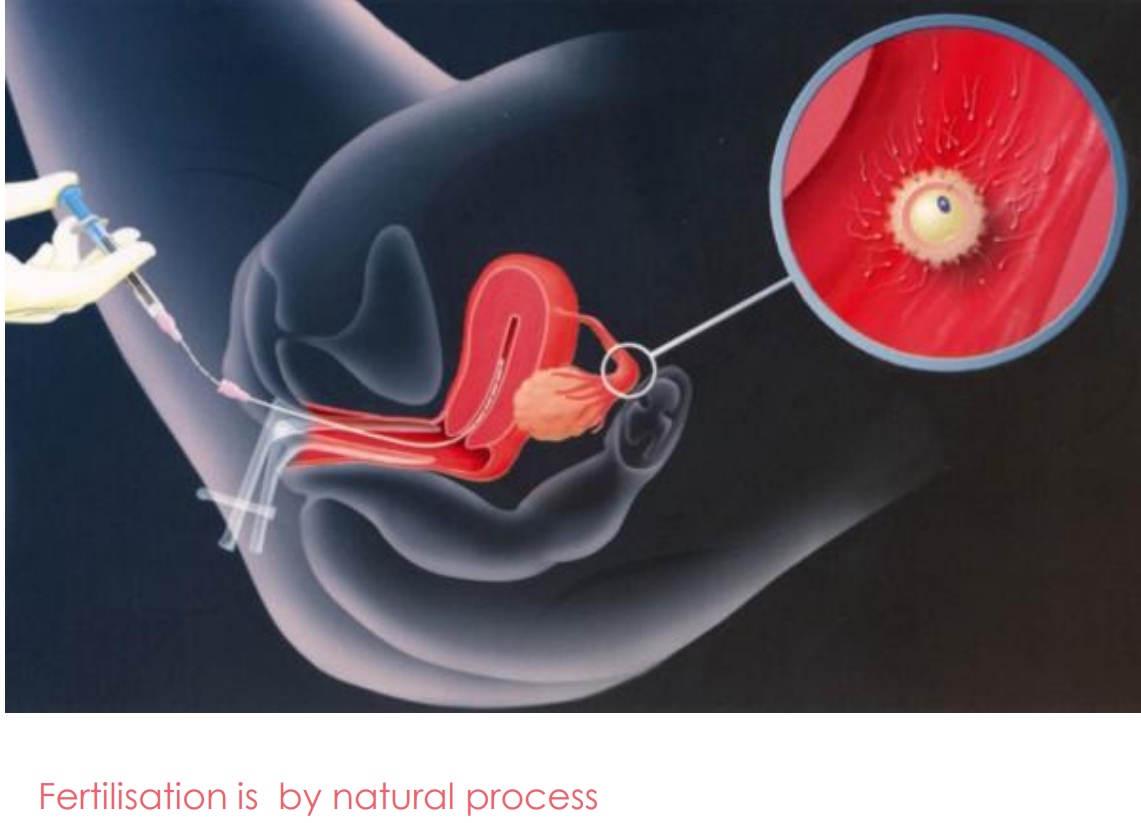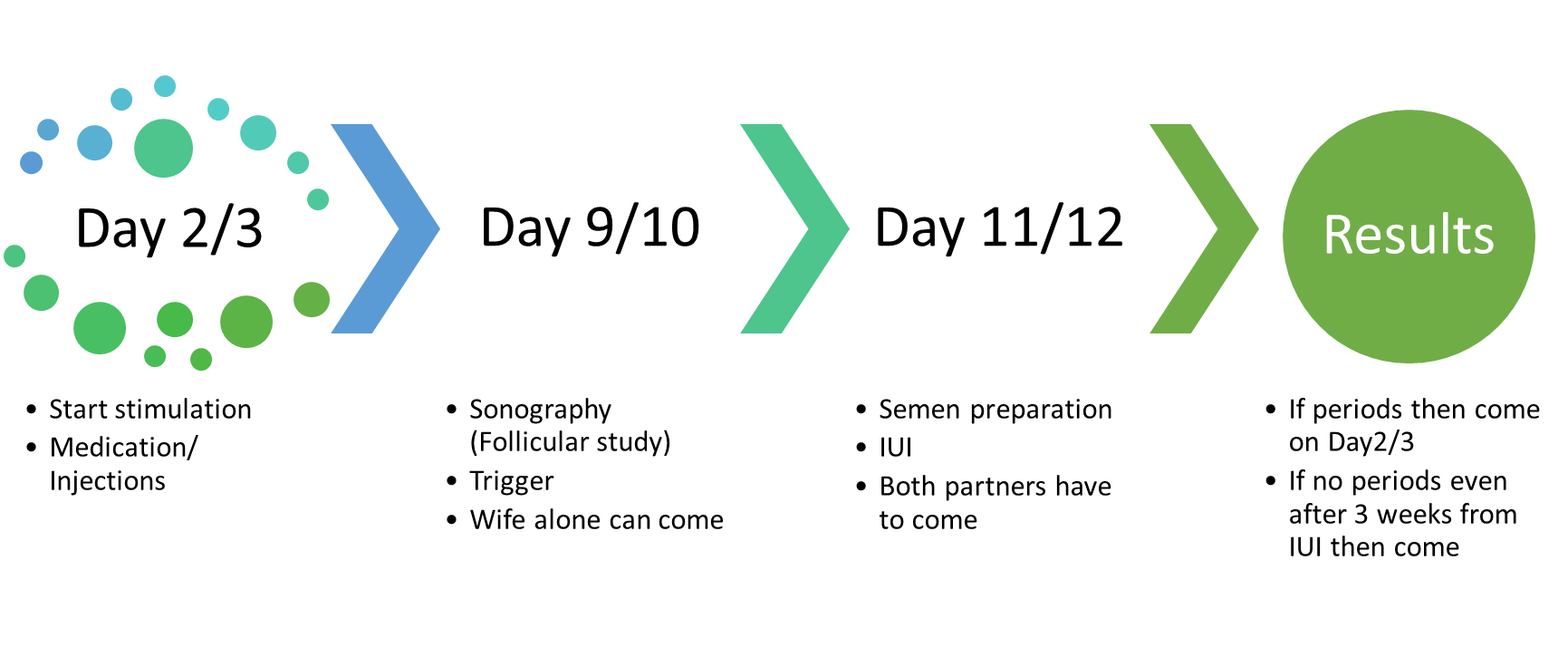Intra Uterine Insemination
Artificial Insemination (AI) is depositing sperms in a woman's reproductive tract during egg release time to achieve pregnancy. Majority of time sperms are deposited in the uterus and hence it is called Intra-Uterine Insemination (IUI).

This procedure is divided into two parts based on the source of sperms
- Artificial insemination with Partner’s semen (AIP): where husband’s sperms are used and
- Artificial insemination with Donor semen (AID): where anonymous donor’s sperms are used.
When is AIP (Artificial insemination with Partner’s semen) helpful?
- When partner’s semen has low sperm count (Oligospermia) or low motility (asthenospermia) or low normal looking sperms (Teratozoospermia) - by processing a semen sample in lab we can make concentrate of healthy motile sperms and deposited in to the uterus.
- Inability to deposit semen in the vagina: like in premature ejaculation, vaginismus, psycological or neurogenic impotence, retrograde ejaculation, hypospadiasis.
- Ovulatory dysfunction: Any abnormalities in follicle/ egg formation and release like in Polycystic ovary syndrome
- Cervical Factor: in some cases where the cervix is narrow, the cervical canal is tortuous or partially obliterated.
- Any uterine factors, endometriosis or even in unexplained infertility just to achieve pregnancy more rapidly.
When is AID (Artificial insemination with Donor semen) helpful?
- Severe male factor (Non-obstructive azoospermia, after no sperms in testicular biopsy)
- Partner has such a genetic disease which has high chances of inheritance in the baby.
- Women with no male partner.
- Very rarely is repeated IVF-ICSI failure when the fertility problem has male origin.
Steps (Timeline) of IUI cycle

Results/ Success rates
regnancy rates vary between 5-70%, though the norm is 10-20% per cycle
Some factors determine results
- Female age: Younger is better as egg quality is good in females <30 years female age.
- Number of follicles: the presence of 2-3 follicles increases the probability of fertilisation and hence pregnancy chances.
- Infertility cause: unexplained infertility has fair chances then unilateral tubal factor
- Sperm quality: higher results if after semen preparation sperm count > 5 mill/ml and motility >80% motile. Higher total motile sperm concentration - higher pregnancy chances.